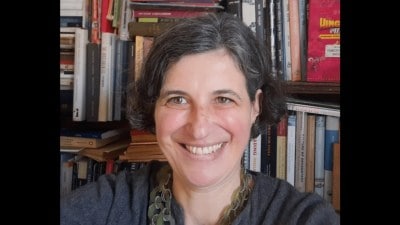An arresting case of a Russian dissident
You almost feel sorry for the police officer detaining Lyudmila M. Alexeyeva as she led a protest on New Years Eve.
You almost feel sorry for the police officer detaining Lyudmila M. Alexeyeva as she led a protest on New Years Eve. It is not just that at 82 she appears as fragile as a porcelain teacup,or that she was dressed as a Snow Maiden,complete with sparkly hat and adorable fur muff.
That is part of it. The other part is that as a young woman,Alexeyeva sat through so many KGB interrogations that she rolls her eyes rather than count them. She was developing a variety of strategies to distract,deflect and otherwise irritate the authorities before the police officers parents were out of grade school.
Hearing of Alexeyevas arrest,Paul Goldbergwho wrote with her The Thaw Generation: Coming of Age in the Post-Stalin Era,on her life as a dissidentstarted to laugh. It is not fun to tangle with this person. She will make you feel like dirt,and she will do it because you are dirt.
Alexeyeva is now in her 43rd year of provoking official Moscow. The enemy these days is the government ushered in by Vladimir V. Putin who methodically constricted the human rights movement. But long before that,it was the airless confinement of Leonid Brezhnevs Soviet Union,where Alexeyeva was one of a tiny group of intellectuals who risked their lives to press for freedom and human rights.
Alexeyeva,who now walks with difficulty,can still lead a demonstration,which is what she was doing when she was detained on New Years Eve. Just a shade over five feet tall,she provokes reverence,exasperation.
She grew up in a world suffused with whispers. There was muffled weeping when her neighbours were arrested in Stalins purges. At 19,she was reported to a Communist party secretary for reciting banned poetry. At 40,she typed the Chronicle of Current Events,a journal compiled in secrecy that not even its contributors knew one anothers roles. Once,hauled in for questioning,Alexeyeva stuffed eight copies of the manuscript into her bra.
Everyone knew the sentence for crimes against the state: seven years in a penal camp and five years in exile. On her way into KGB headquarters,Alexeyeva would stop to buy a ham sandwich and an orange. These were delicacies in the 1970s,even for the investigator,who was headed for a lunch of gray cutlets. Halfway through,Alexeyeva would unwrap her lunch and lay it out on the table.
They reacted very nervously when they started to smell ham, she said with a sweet smile. Then I would start eating the orange,and the aroma would start dissipating through the room. The effect was reliably hypnotic. Thats how I amused myself, she said. It was a way to play on his nerves.
Her career could have ended with emigration. But in 1993,after 16 years in US,Alexeyeva and her husband moved back to a changed Russia. As chairwoman of the Moscow Helsinki Group,she surveyed a changed landscape. New fears have replaced the old ones. Alexeyeva has received death threats.
Now they (state investigators) do what they want, she said. There were rules then. They were idiotic rules,but there were rules.
Alexeyeva casts the democratic rollbacks of the Putin period as the recoil that inevitably follows revolution,not as a catastrophe. She believes that Russians are passive because they are poor,and that that will not change as long as they remain so.
They are completely not stupid people; they understand everything, she said. They just have no power to act.
Alexeyeva shows a grandmasters genius for getting her message out,especially to the West. One was her New Years Eve rally,in homage to the article in the Russian Constitution,which guarantees the freedom of assembly. The last time,everyone was arrested except Alexeyeva,but this time she was swept up with 50 others onto waiting buses. It did not take long for the police to realise their error: within 40 minutes,one of them opened the doors of the bus and told Alexeyeva she was free to go. She refused,and by that time photographs were beamed around the world showing a wraithlike woman looking up apparently in terror at an officer in camouflage.
Alexeyeva had rather expected to be arrested,so she had ordered hot meat pies delivered to her apartment and told the guard to admit her New Year guests. A party was in full swing at 11 p.m.,when she arrived home from the police headquarters. Russian leaders would wake up to angry statements from the United States National Security Council,and then from the president of the European Parliament,Jerzy Buzek,who said he was profoundly and personally touched when I think that this very respectful 82-year-old woman spent the night of New Years Eve under Russian arrest.
Whether it will serve as a lesson I cant say,because they study very badly.



- 01
- 02
- 03
- 04
- 05




























